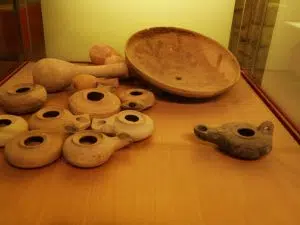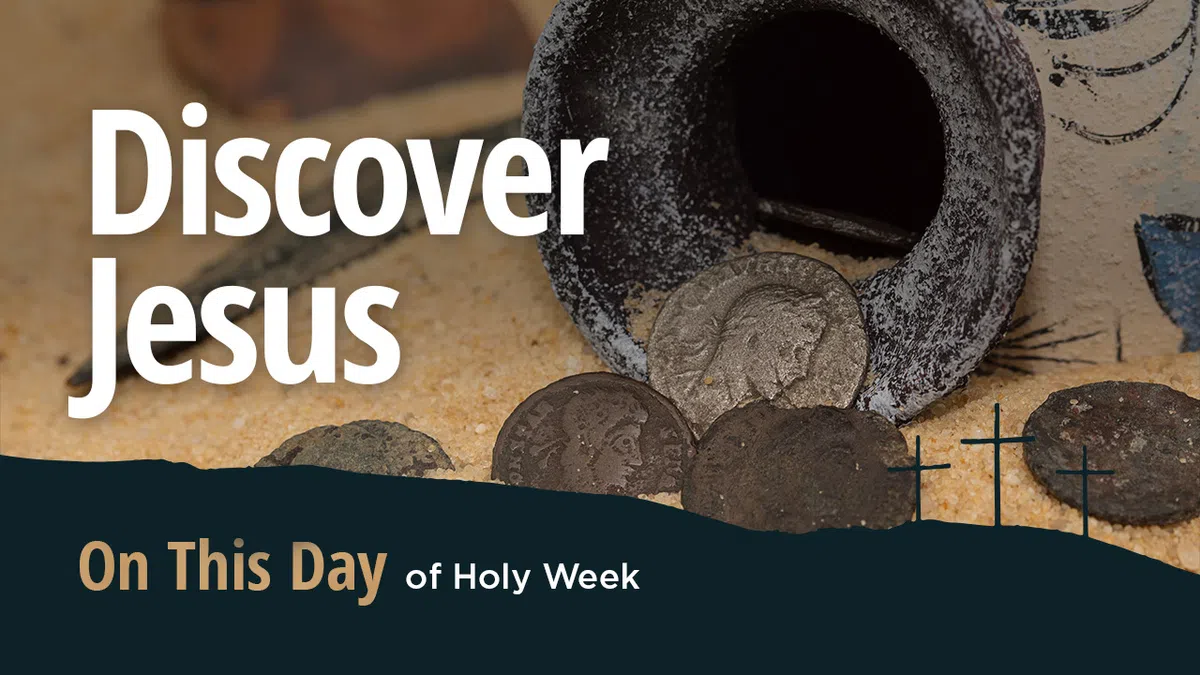
Description: Jars used for oil. (PC: Eunice Nygard)
On Wednesday of the Holy week, we find an interesting twist of irony as Matthew 26:6-13 shares the story of Jesus being in Bethany at the house of Simon the Leper. A woman enters the house and proceeds to pour out a very expensive alabaster jar of perfume over Jesus’ head. The disciples are said to be indignant that this extravagant expense was being wasted and that it could instead have been given to the poor. As Jesus heard these words, he commended the heart of the woman and explained that she had poured out the perfume to prepare him for burial. Though the disciples were not thinking of Jesus as being near death, the woman wanted to express her love and worship to Jesus and freely spared no expense to honor him.
In the very next verse Matthew turns to reveal that Judas Iscariot, a disciple of Jesus, was secretly negotiating with the chief priests about what they would be willing to pay in order for him to lead them to Jesus. The priests counted out thirty silver coins and gave them to Judas. In contrast to the woman with the alabaster jar of perfume, the priests were making clear their contempt for Jesus with a minimal price they placed upon his life.
Today, whenever you hear the phrase thirty pieces of silver it immediately brings to mind a traitor or someone who would sell out a friend. There is also a level of curiosity that surrounds the coins. What exactly did Judas receive to betray Jesus? Was it worth it to him?

Description: Garden of Gethsemane (PC: Wendi Oliver)
Because the Bible does not specifically state which silver coins the priests gave, scholars debate the actual value of the coins in the time of Jesus. Some say the value may have been worth as high as 120 day’s wages, while many others believe it could have been as low as five day’s wages.
In considering the real price that was placed on Jesus it is important to look at other places where the Bible uses the term thirty pieces of silver. In Exodus 21:32 we find that the Mosaic Law required a master must be paid thirty pieces of silver if a slave was killed by an ox. A second reference in Zachariah 11:13 tells when Zachariah asked the priests to pay him what he was worth and he was given thirty pieces of silver, which spoke little value to him.
The story of Jesus and his passion week comes even more into focus when we read the Apostle Paul’s words about Jesus in Philippians 2:5-11. Here Paul describes Jesus coming in humility to serve as our redeemer. In verse seven he describes Jesus as taking on the form of a servant, some versions use the term bondservant. Paul uses the Greek word doulos, which literally means slave. Jesus was willing to humble himself to offer himself up upon the cross, to purchase what we could never afford, the only worthy price for our forgiveness in the eyes of our just and pure God. Judas sold Jesus for the price of a slave, as Jesus laid down his life as the ultimate gift to humanity. If we can see Jesus like the woman with the alabaster jar did, we can honor him, as he is so worthy of, as our Lord and King.
Immerse Yourself
Listen to “They Plot to Kill Jesus | Easter Drama Day 4” on Spreaker.
Prayer:
Lord, we are so sorry we don’t always remember your value and what you are really worth to us. Lord, we lift our lives up to you, we honor you. You are worthy of everything and we give you our whole selves freely.
Reflection Questions:
- How does the linking of Pauls’ writing in Philippians 2 of Jesus taking on the form of a slave to the historical value of thirty pieces of silver influence your view of Christ’s sacrifice of the cross?
- Like the woman with the alabaster jar, what gift can you bring the Lord that conveys his great value and honor in your life?
by Steve Jamison, Lead Pastor, Eastridge Church

















Comments